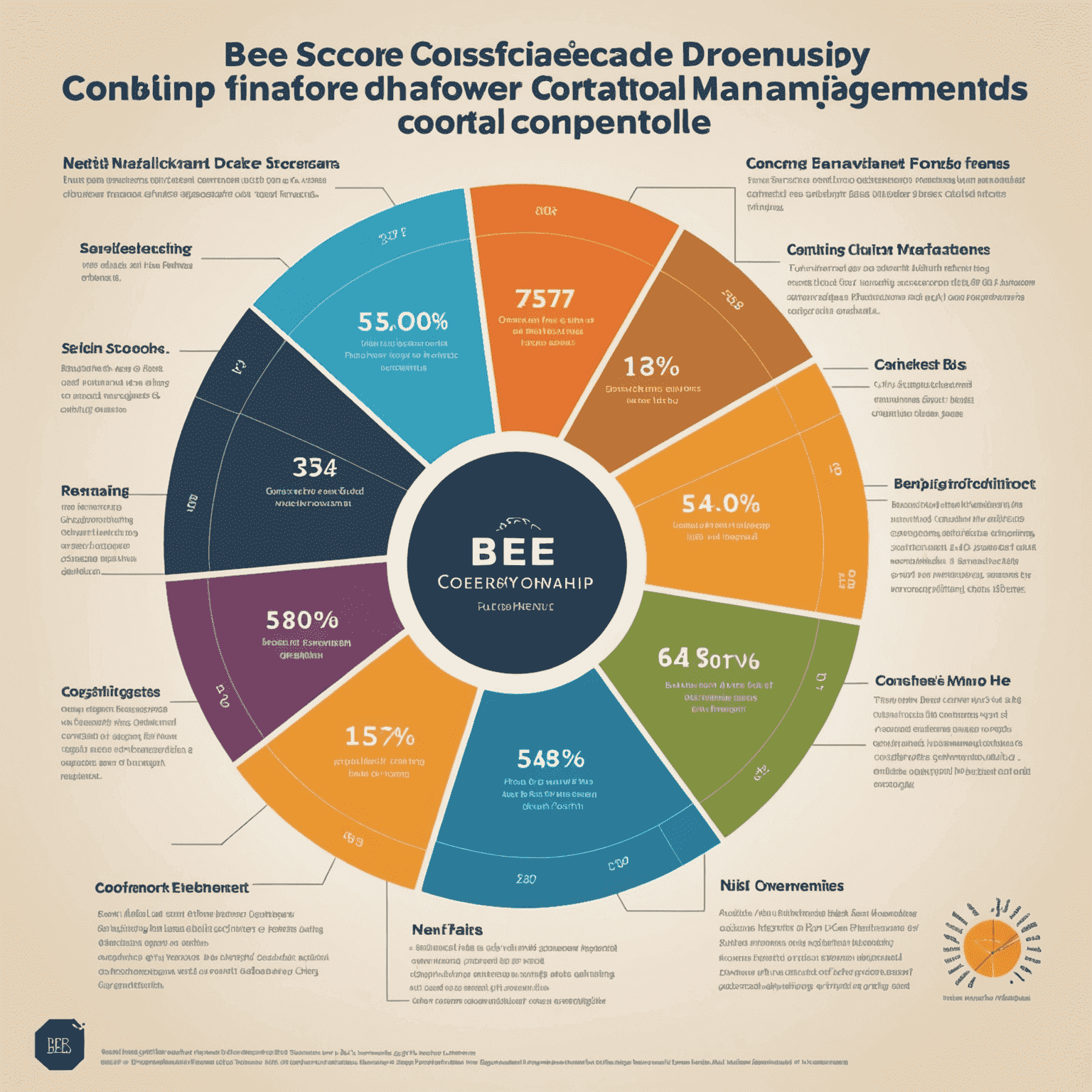BEE Policy Updates: Reshaping the Consulting Landscape

Recent amendments to Black Economic Empowerment (BEE) policies are set to have far-reaching implications for the consulting sector in South Africa. These changes aim to accelerate transformation and create more opportunities for previously disadvantaged individuals.
Key Policy Changes
- Ownership Criteria: The minimum black ownership threshold for consulting firms has been increased from 30% to 40%.
- Skills Development: Companies are now required to invest 3% of their annual payroll in training and upskilling black employees.
- Enterprise Development: A new focus on supporting black-owned SMEs in the consulting supply chain has been introduced.
- Management Control: The target for black representation in senior management positions has been raised to 60%.
These policy updates reflect the government's commitment to addressing historical imbalances and promoting inclusive growth in the business services sector. Consulting firms will need to adapt their strategies to comply with these new requirements while maintaining their competitive edge.
Impact on the Consulting Sector
The revised BEE policies are expected to have significant implications for consulting firms operating in South Africa:
- Restructuring Ownership: Many firms will need to review their ownership structures to meet the new black ownership requirements.
- Enhanced Training Programs: Increased investment in skills development will lead to more comprehensive training initiatives for black employees.
- Supply Chain Transformation: Consulting companies will need to actively seek out and support black-owned SMEs as suppliers and partners.
- Leadership Pipeline: Firms will need to accelerate their efforts to develop and promote black talent into senior management roles.

Opportunities and Challenges
While these policy changes present challenges for some consulting firms, they also create opportunities for those who embrace transformation:
- Increased competitiveness for BEE-compliant firms in securing government and corporate contracts
- Access to a wider pool of diverse talent and perspectives
- Potential for innovative partnerships with emerging black-owned consulting businesses
- Enhanced reputation and brand value through demonstrated commitment to transformation
However, firms will need to navigate potential challenges such as:
- Short-term costs associated with restructuring and compliance
- Potential resistance from existing shareholders
- The need for cultural change management within organizations
Preparing for the Future
As the consulting sector adapts to these new BEE policy requirements, firms that proactively embrace transformation are likely to gain a competitive advantage. By aligning their business strategies with the principles of inclusive growth and empowerment, consulting companies can contribute to a more equitable business landscape while positioning themselves for long-term success in the South African market.
Stay tuned for more updates on how these BEE policy changes continue to shape the consulting industry and impact business services across South Africa.